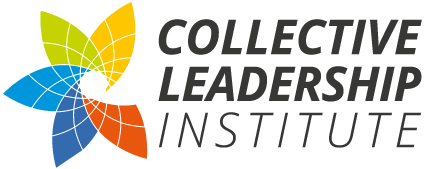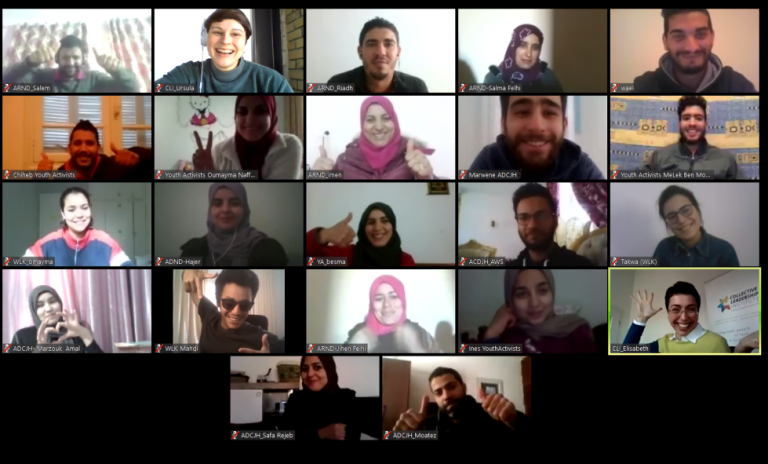CLI has partnered with the GIZ PROMET program in Morocco to enhance support services for entrepreneurs in the Marrakech-Safi region. As one of Morocco’s economic powerhouses, the region hosts a diverse range of public and private institutions offering services such as seed funding, business plan development, and investment opportunities. However, this vibrant support ecosystem suffers from a lack of coordination, resulting in service gaps, redundancies, and unrealized potential to effectively support entrepreneurs.

Project time: 2023-2024
Sector(s): private sector, public sector
Main SDG: 9 Industry, Innovation and Infrastructure
Stakeholders: Regional Investment Centre, the National Agency for the Promotion of Employment and Skills, key regional authorities, entrepreneurs.
Outcome: Developed a coordination mechanism for the supports offers in the region, that is anchored in principles of aliveness and allows the entrepreneurship ecosystem to be led collaboratively towards greater resilience, agility and effective support to entrepreneurs in Marrakech-Safi.
CLI Project Managers: Elisabeth Kuehn, Katharina Maier

CLI explored stakeholder engagement for empowering women economically and politically in the MENA region with the team from GIZ’s WoMENA regional project. For the first time, all project team members from Tunisia, Egypt, Jordan, Lebanon, and Palestine came together to discuss the demands of balancing regional and national activities, navigating the differences and commonalities across the region, and developing engagement strategies on a topic that is both sensitive and paramount for true sustainable development of any country.
Project time: 2023-2024
Sector(s): public sector
Main SDG: 5 Gender Equality
Stakeholders: GIZ WoMENA project team staff members and their stakeholders.
Outcome: Participants learned about the Dialogic Change Model, the relevant collaboration ecosystems were analysed, process steps were developed to launch engagement and deepen structured conversations with stakeholders both nationally and regionally, action plans for different working groups on topics such as as e-payments, e-municipalities, and e-participation were co-developed.
CLI Project Managers: Elisabeth Kuehn, Mai ElAshmawy, Miral Omran
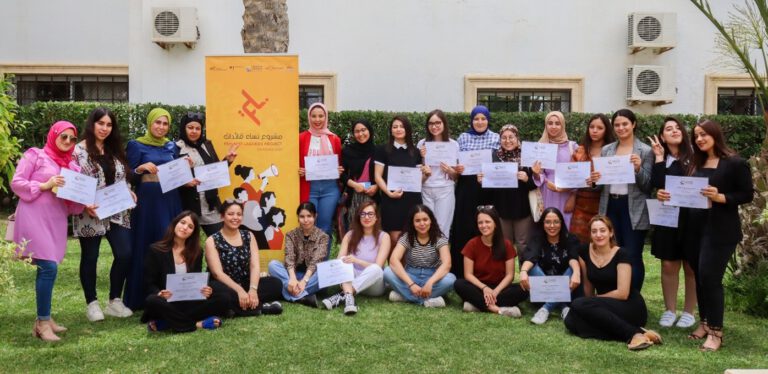
CLI together with its long-term partner We Love Kairouan and CLI’s new partner We Start kicked-off the new Feminist Leaders Project implemented in the city of Kairouan, Central Tunisia. The project’s goal is to form a local feminist action group of 24 young feminist leaders who will co- develop female-led local initiatives for improved living conditions in the city, for both women and men.
The project started off with a joint learning journey on feminist topics such as mental health, Opportunities for women to participate in politics, violence against women and how to protect women of such. The goal was to gain a common understanding of what feminism means generally, but also personally for the women themselves, and overall which feminist development is particularly needed in Kairouan. Together, the 22 women determined the topics that are most important to them and formed two working groups on the following topics: 1) Women’s health including mental health issues, sexual health, and awareness of reproductive rights. 2) Awareness for the law 58 which prevents violence against women and economic independence as a pathway to get out of violent relationships.
After determining the topics of the initiatives, the women were trained during a 4-day training on how to set up successful collaborations with local stakeholders, to implement their ideas in the future. In the next months, the feminist leaders will test the resonance for their ideas among the relevant stakeholders. The goal is to include them in the process of developing the initial ideas further and integrate the local perspectives and experiences into the process. By the end of this first project year, the feminist leaders action groups plans to hold a first local dialogue forum with the engaged stakeholders, present the first results of their conversations, and talk about next steps in actually implementing the jointly developed local initiatives.
The project is funded by ifa (Institut für Auslandsbeziehungen) with funds from the German Federal Foreign Office (Auswärtiges Amt).
Project time: 2023-2024
Sector(s): civil society
Main SDG: 5 Gender Equality
Stakeholders: A local feminist action group of 24 young feminist leaders and their stakeholders in the community of Kairouan
Outcome: A local feminist action group is formed, key topics that they want to pursue and develop further in the form of concrete local initiatives are set, action plans to implement the ideas are developed and rolled out to improve living conditions in the city, for both women and men.
CLI Project Managers: Elisabeth Kuehn, Theresa Kuschka

CLI had the great privilege to conduct an On-Site course on “The Art of Stakeholder Collaboration” for GIZ Tunisia and its key stakeholders working on digitalization in the public sector. The 4-day training took place in Berlin, as part of a study trip that GIZ organized for their stakeholders to learn and exchange about digitalization processes and tools. The project continued with on-site work in Tunisia in 2023 to concretize and sustain collaboration on digitalization efforts in the public sector.
Project time: 2022-2023
Sector(s): public sector
Main SDG: 11 Sustainable Cities and Communities
Stakeholders: >20 key stakeholders working on digitalization in the public sector.
Outcome: Participants learned about the Dialogic Change Model and the Collective Leadership Compass and co-developed action plans for different topics such as as e-payments, e-municipalities, and e-participation.
CLI Project Managers: Douglas F. Williamson, Theresa Kuschka, Katharina Maier

From February to March 2022, CLI facilitated an innovative 4-part micro-training series on the Future of Finance for members of the Financial Systems Development MENA Working Group. The FSD MENA Working Group is part of the GIZ Sector Network MENA and is active on behalf of the Federal Ministry for Economic Cooperation and Development of the German Government. In total 12 participants across the MENA region were sensitized to emerging issues in financial technology and innovation, which will shape the sector, as well as the know-how in actively pursuing and driving forward institutional and sectoral change for good.
Project time: 2022
Sector(s): public sector, private sector
Main SDG: 17 Partnerships for the Goals
Stakeholders: 12 members of the Financial Systems Development MENA Working Group
Outcome: Participants learned how to implement new developments, solutions, and ways to think about finance in their day-to-day work in Multi-Stakeholder Collaborations; they are now able to carry out a stakeholder analysis, develop an engagement strategy, conduct a quality assessment of their collaboration ecosystem, and manage to guide multi-stakeholder collaboration in difficult settings.
CLI Project Manager: Alina Gruen
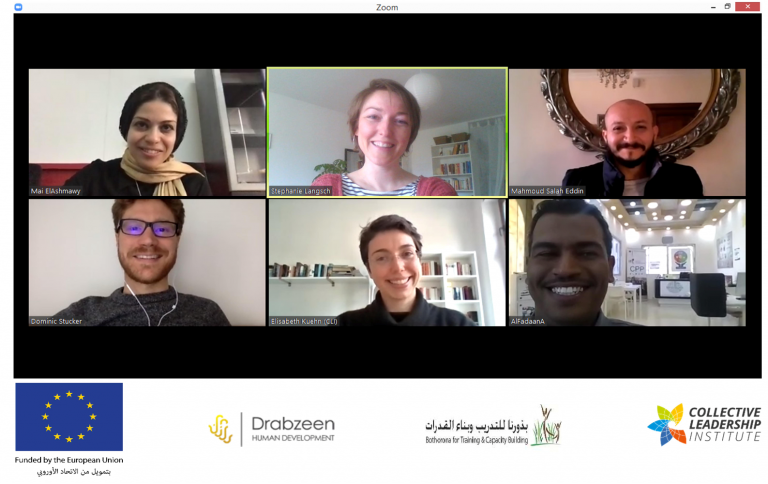
Since early 2020, CLI has been partnering with two Jordanian non-profit organisations, Bothorona for Training and Capacity Building as well as Drabzeen Human Development, in a project funded by the European Union to support three Jordanian communities to develop and realize their own solutions for economic youth empowerment. In order to achieve this, project partners aim to train and support youth-focused and youth-led civil society organizations (CSO) in North Western Badiah, East Western Badiah, and Al Taybeh to initiate and facilitate a structured dialogue among people effected and concerned by the challenge of youth unemployment, such as young citizens, community leaders, local authorities, and the administration. The core project team supports the CSOs to ensure that this is not a dialogue for dialogue’s sake, but a co-creative exchange that comes up with concrete community development initiatives. CLI’s Online Learning approaches have been integrated into the project, providing the means to go fully online with all activities so far, including core project team and external communications, as well as engaging CSOs via interactive and dynamic online sessions.
Current situation:
The project team, consisting of CLI and its partners Bothorona and Drabzeen, continues its journey toward empowering young Jordanians in Mafraq and Ma’an to convene policy dialogues focused on youth employment opportunities. We are very happy to announce that 15 CSOs in North Western Badya, East Western Badya, and Taybeh collaborated to submit 6 winning applications. Winning teams will be supported in working collectively in their respective communities, will learn from and support one another’s initiatives, and will contribute positively to youth economic empowerment in Jordan.
To get our latest news and updates, please follow us on:
Project time: 2020 – 2021
Sector(s): civil society, public sector, private sector
Main SDG: 8 Decent work and sustainable economic growth
Stakeholders: Staff members of up to six local CSOs and their public and private sector stakeholders on local and national level
Outcome: Selected youth members from Jordanian CSOs are strategically empowered as initiators and facilitators of Policy Dialogues between citizens, key stakeholders, and local authorities on youth employment.
CLI Project Managers: Elisabeth Kuehn, Dominic Stucker, Stephanie Langsch, Mai ElAshmawy
Since February 2017, CLI collaborates with the youth civil society organization We love Kairouan (WLK) in Kairouan, Tunisia, to strengthen civil engagement, local good governance and decentralization of the democratic process in Kairouan.
WLK supports local identity, culture and environmental awareness in the city and region of Kairouan.
With CLI’s transformation stewardship, We love Kairoun implemented three projects from 2017 to 2021 under the funding of ifa (Institut für Auslandsbeziehungen) with funds from the German Federal Foreign Office.
With support of CLI’s transformation stewardship, WLK developed an action-oriented dialogue platform named Bab el Medina’ (‘Gates of the Medina’), between local administration and citizens. Its objective is to develop and implement ideas and concrete actions on the sustainable development of the ancient city center, the Medina, in Kairouan, a UNESCO world heritage site. The first action of the platform focused on the Souk al Mouajel, a historic covered market site in the Medina center that can trace its roots back to the 12th century, and that is currently dysfunctional. Applying the CLI approach, We love Kairouan expertly facilitated the co-creation of a sustainable architectural restoration, with details that interlink economic, social and ecological aspects, and that bridge tradition and modernity – such as renewable energies for the lighting combined that illuminates the traditional combination of workshop and sale spaces for artisans and merchants.
The platform is unique in its truly collaborative approach to urban development, where citizens are not merely consulted on their opinions, but co-create a shared understanding of what is important, and what should be done, together with the local public power.
Based on the huge success of the action on the Souk, the second initiative by the platform will focus on the environmental aspects in the Medina. Points of interest are in particular the reduction of pollution through dysfunctional waste management and exhausts. Accordingly, the Bab el Medina platform has been expanded to also include the National Waste Management Agency and the New Environmental Police. Citizens and local public officials on the platform chose the area around Rahba Place in the Medina to develop a comprehensive plan for a sustainable redesign of the city’s area, including energy efficient public transport, pollution reduction and improved waste management and recycling. The platform is organized into task forces advancing the funding and implementation of each step of the plan.
Accreditation of 4 new CLI facilitators in Tunisia
Through the course of these first two projects, four team members of the We Love Kairouan association have become CLI accredited facilitators: Soumaya Khalfoui, Takwa Mallat, Oumaima Selmi and Mahdi Ayadi. This means that they have not only completed the certification track of participating in three CLI trainings, but they have also written their own CLI study on the ‘Bab el medina dialogue platform’ which eventually qualified them to become accredited facilitators of the CLI methodologies – the Collective Leadership Compass and the Dialogic Change Model. This accreditation paved the path to the following project in which the WLK team upscaled the local platform and facilitated the set-up of a regional young leaders’ network.

In a trainers-of-trainer approach, CLI and WLK worked over two years to upscale the local Bab el Medina platform into a regional young leaders’ network: Three youth NGOs were identified to become part of the network: Youth Activists in Krib, the Association for Natural Resources and Development (ARND) in Regueb and the Association for Youth and Cultural Development in Hergla (ACDJH).
Throughout the project period, two parallel processes took place: 1. The set up and implementation of three local sustainable initiatives in Regueb, Krib and Hergla.
2. The set-up of a transformation network between all three NGOs with WLK as the backbone organization.
To support these processes, CLI and WLK jointly conducted capacity trainings on the ©Collective Leadership Compass and the ©Dialogic Change Model for the project teams of each of these associations (young leaders), to provide them with the necessary skills to facilitate the setup of local dialogue platforms in their respective communities. The trainings focused on the competences to facilitate dialogue between different stakeholders and to set up effective collaborations for joint development of local initiatives.
WLK also took the important role of the backbone organization and was in continuous exchange with each of the project teams to support and mentor them in the facilitation process of their respective local initiatives. Moreover, WLK created opportunities for learning exchange and mutual support among the initiatives to steadily set up a strong regional network. CLI had a mentoring role towards WLK and supported them in the background with regular exchange meetings to continuously strengthen their role as backbone organization of the network.
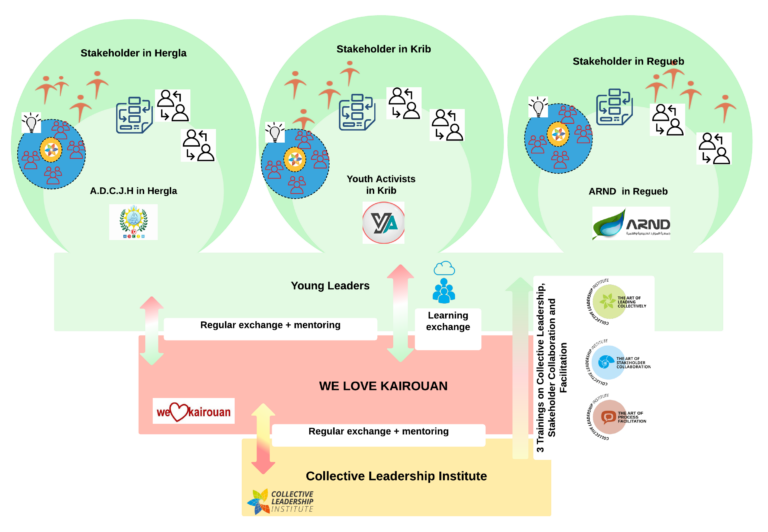
As a result of the dialogue process, the project teams together with the local stakeholders set up these three local initiatives:
- ARND in Regueb: First farmer-initiated cooperative for certified biological products in the Sidi Bouzid region (Regueb)
- A.C.D.J.H in Hergla: Preserving artisanal and cultural heritage through education and promotion
- Youth Activists in Krib: Ecological village for sustainable tourism
What else emerged through the project?
- 18 young leaders trained in core collective leadership skills
- > 200 people directly involved
- > 90.000 people indirectly involved
- Endorsement by regional administration for initiatives from all communities
- Significant financial contributions by administrations and citizens to fund initiatives
- Three strong collective action teams of NGOs, citizens and administration, working on other/ new local development projects
- Endorsement of collective leadership approach on the local level of administration
- Increased visibility, volunteer engagement and outreach for all NGOs
Project time: 2017-2022
Sector(s): civil society, public sector, private sector
Main SDG: 16 Peace, Justice and Strong Institutions
Stakeholders: Staff members of the local NGO “We Love Kairouan” (Kairouan), Youth Activists (el Krib), Association for Natural Ressources (Regueb), Asscoiation for Youth and Cultural Development (Hergla) , their public and private sector stakeholders on local and national level
Outcome: An action-oriented dialogue platform between local administration and citizens was created, a sustainable architectural restoration of the Souk al Mouajel and a sustainable urban development plan for a city quarter in Kairouan was created; a regional youth leaders network and local actions in el Krib, Hergla and Regueb are in development
CLI Project Managers: Elisabeth Kuehn, Sabine Heckmann, Stephanie Langsch, Theresa Kuschka

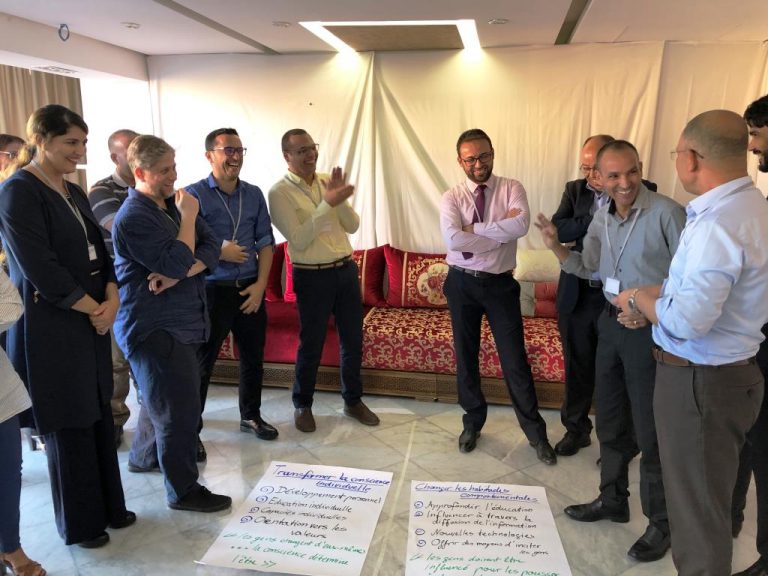
Project time: 2019-2023
Sector(s): public sector, private sector
Main SDG: 8 Decent Work and Economic Growth
Stakeholders: Representatives from the two regions Benimellal-Khenifra and Fes-Meknes, as well as from provinces within these regions.
Outcomes: Joint financing of measures approved between local and regional administration; scaling up of successful pilot
to 4 other provinces, including one in 1 new region; communication structures across local, regional, and national level; official endorsement of collaborative approach by the partner Ministry; maintenance and qualitative deepening of successful
collaboration in pilot regions; ownership of the project measures by involved stakeholders across all levels; attested sustainability of approach by partners; improvement of the social situation of young people and impact on the community.
CLI Project Managers: Elisabeth Kuehn, Douglas F. Williamson

CLI had the privilege to work with 18 engaged community leaders from the communities of Al-Mafraq, Irbid, and Zarqaa in Jordan. It was part of the “Community Participation Programme ++” which is supported by the German Institute for Foreign Relations (Institut für Auslandsbeziehungen, ifa) and seeks to empower communities to design and implement initiatives that increase social integration and quality of life in the context of high influxes of refugees from Palestine, Iraq, and, more recently, from Syria. The workshop participants were trained in the CLI Dialogic Change Model which supports them to launch their initiatives, such as reducing youth drug abuse, increasing psychological health awareness, and improving hospital services.
Project time: 2019
Sector(s): civil society
Main SDG: 10 Reduced Inequalities
Stakeholders: 18 Community Leaders from Al-Mafraq, Irbid, and Zarqaa (six of each community).
Outcome: Relevant stakeholders are analysed and mapped, engagement and dialogues processes for three initiatives (one of each community) are designed with the help of the Dialogic Change Model.
CLI Project Managers: Dominic Stucker, Mai ElAshmawy (CLI Associate)

In partnership with the Gesellschaft für Internationale Zusammenarbeit (GIZ), CLI is collaborating with the Secretariat of the National Committee for the Business Environment in Morocco (Comité National de l’Environnement des Affaires – CNEA) to develop skills in Collective Leadership, in Stakeholder Dialogues, and in dialogic facilitation for selected members of the Secretariat. The aim is to strengthen the national and international impact of CNEA as a focal point and high-level public-private platform that catalyzes the commitment and public-private collaboration needed to improve the business environment in Morocco.
Project time: 2019
Sector(s): public sector, private sector
Main SDG: 8 Decent Work and Economic Growth
Stakeholders: Staff members of the Secretariat of the National Committee for the Business Environment in Morocco (CNEA)
Outcome: National and international impact of CNEA as a focal point and high-level public-private platform is strengthened, ownership and shared responsibility are promoted, a multi-year strategy for improvement of the business environment is defined.
CLI Project Manager: Elisabeth Kuehn

In Egypt, CLI is in a partnership with GIZ on their “Enhancement of the Egyptian Dual System” (EEDS) project. The objective is to help build multi-stakeholder dialogue and collaboration capacity and structures at multiple levels that can jointly articulate and effectively work toward a shared vision for the Egyptian Dual System through a Collaboration Ecosystem. This work has focused on supporting, at high level, the multi-stakeholder DES Executive Council and Technical Amana.
Some words from our client:
“It was a great, exciting, enriching, and easy collaboration. And it was fun, too. I can definitely imagine to cooperate with CLI in future projects.” – Lars Fiechel, GIZ Project Leader, Enhancing the Egyptian Dual System.
GIZ best practice case for public-private sector collaboration in TVET :
The Gesellschaft fuer internationalle Zusammenarbeit (GIZ) identified CLI’s collaboration with GIZ Egypt and national partners as a best practice case for public-private sector collaboration in TVET in the MENA region. Enjoy their publication (CLI case page 31-34).
Project time: 2017-2019
Sector(s): public sector, private sector
Main SDG: 4 Quality Education
Stakeholders: Technical Amanas on Governorate and National levels, Executive Council of the Dual System, in total approx. 250 key stakeholders, indirectly more than 60,000 dual system students who will benefit from the project
Outcome: Ten multi-stakeholder dialogue platforms were established (one national and nine regional platforms), 20 Collective Leadership Specialists were trained to sustain and further develop the initiated process, the number of students in the dual system increased by 37% from 2017 to 2019.
CLI Project Managers: Dominic Stucker, Lulekwa Gqiba, Douglas F. Williamson, Mai ElAshmawy (CLI Associate)
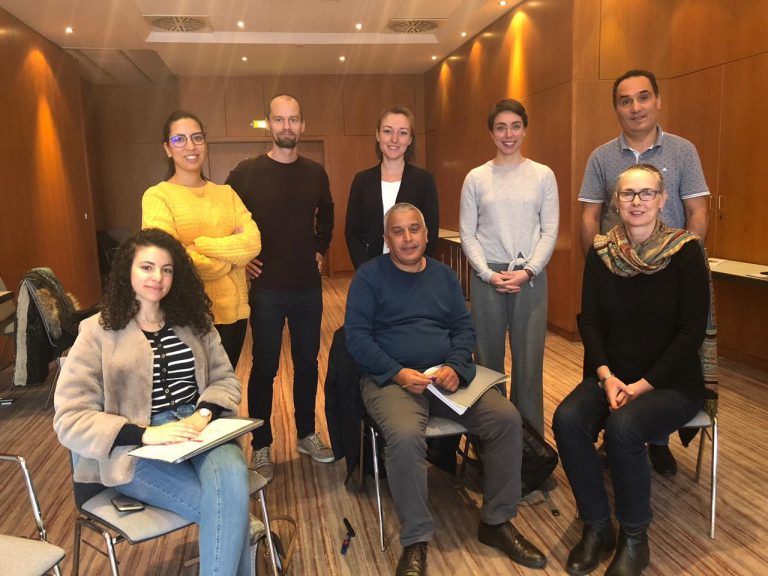
Climate Change Competence Center of Morocco (4C Maroc) has been established as a result of Morocco’s mission to fight effects of climate change in the country. With its mission to provide training and share information on the mitigation of climate change effects, the center, together with its partner GIZ Morocco, organized a study tour to Germany to gain insights and inspiration from other institutions. Collective Leadership Institute supported the visit by providing two tailored workshops with the goal to support establishment of a concrete action plan for improving the collaborative and communicative mission of the 4C.
Project time: 2018
Sector(s): public sector, private sector
Main SDG: 13 Climate Action
Stakeholders: Key representatives from the 4C Maroc (Climate Change Competence Center)
Outcome: Visited three climate change institutions in Germany, enabled the study tour participants to guide all their future activities around the Collective Leadership Compass, created a concrete action plan for improving the collaborative and communicative mission of the 4C.
CLI Project Managers: Elisabeth Kuhn, Stephanie Langsch

Mai ElAshmawy, as part of her Collective Leadership Facilitator accreditation, published this case study “Paving the Way to Establish a Competitive Electricity Market in Egypt” which introduces her work applying CLI’s Collective Leadership Compass and Dialogic Change Model between 2015 and 2017 in this complex multi-stakeholder project.
Project time: 2015-2017
Sector(s): public sector, private sector
Main SDG: 7 Affordable and Clean Energy
Stakeholders: Egyptian Electric Utility and Consumer Protection Regulatory Agency (EgyptERA) and external stakeholders in the Egyptian energy sector
Outcome: EgyptERA led a multi-stakeholder process that co-created and agreed on an Action Plan that clearly illustrated timelines and steps to be taken to ensure a successful transformation towards a competitive electricity market in Egypt.
CLI Project Managers: Mai ElAshmawy

Until today, Morocco’s rural provinces have been marginalized by the countries’ economic growth, which is centred in its northern and coastal regions. In six pilot provinces (Midelt, Ouarzazate, Tata, Zagora, Tinghir and Er-Rachidia) structures for an institutionalised public-private dialogue were set up in order to find innovative solutions to this challenge. Since Mai 2017, CLI is working together with GIZ Morocco and is supporting representatives from each province respectively to render the new dialogue structures dynamic, innovative and inclusive – in short, sustainable and impact-focused.

Morocco is facing a multitude of economic challenges, so scaling up collaboration skills among relevant partners is essential for the region in order to find innovative solutions. Together with GIZ Morocco, CLI conducted a tailor-made training for stakeholders engaged in promoting micro-enterprises and access to financial education. The stakeholders providing these offers are working in parallel and often in competing constellations, resulting in overlaps and gaps in the needed support. As a result of CLIs unique, trust-building approach, a first comprehensive overview of existing initiatives among the stakeholders was drawn up and provided the necessary clarity to jointly develop two new initiatives to provide better access to financial education
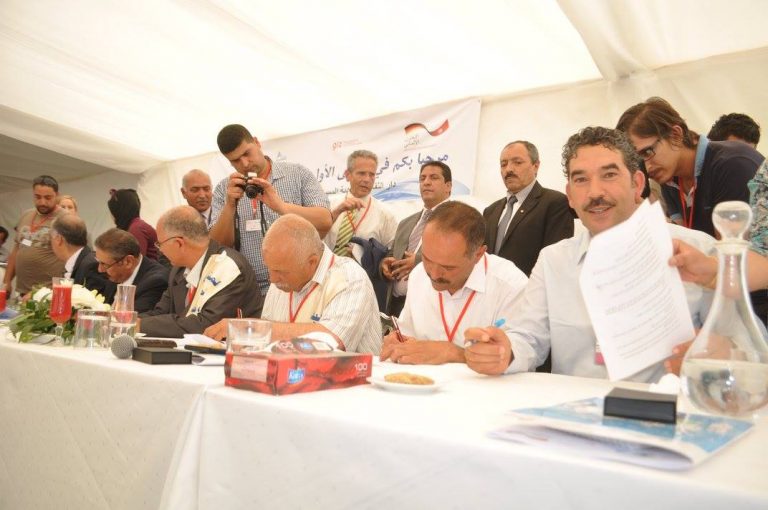
A participatory dialogue process to relieve the deficiencies of water management in central Tunisia.
The Tunisian Ministry of Agriculture inaugurated the first Nebhana Water Forum in Sbikha, Governorate of Kairouan, in 2016. In the framework of the GIZ project Appui à la Gestion Intégrée des Ressources en Eau (AGIRE) and with the support of CLI, the Tunisian administration and local water users – mainly farmers – worked together in a participatory dialogue process in order to find solutions for sustainable water management. As a first step, a joint Charter was signed among the stakeholders, outlining the grounding principles of a shared approach to the management of the local water resources. Concrete measures for improved water management, developed by both parties, were equally presented.
Severe overexploitation of the existing resources has been acutely threatening the local water supply and the regional economy, as almost 80% of the water used for agriculture, the major economic sector in the region of Sbikha. Before the Charter was signed, dialogue process of over a year led up to this first Forum and shifted mentalities significantly. The awareness of water resources as a shared responsibility and the recognition of the need to develop and implement solutions in a collaborative way are now firmly established among the stakeholders. A water user stated that ‘we thought the water was always available – with this dialogue we have come to understand that the water supply is in danger, and that we need to talk to each other to find solutions.’
These first results of the dialogue process represented an unprecedented level of local governance in Tunisia, showing, against all odds, a groundbreaking re-establishment of trust between administration and citizens.
Project time: 2014-16
Sector(s): public sector, civil society, private sector
Main SDG: 6 Clean Water and Sanitation
Stakeholders: Tunisian administration, local water users (mainly farmers)
Outcome: Awareness of water resources as a shared responsibility was built, a dialogue process of over a year and with more than 300 stakeholders was set up, a joint water charter was officially signed outlining the grounding principles of a shared approach to the management of the local water resources.
CLI Project Managers: Kristiane Schaefer, Elisabeth Kuhn
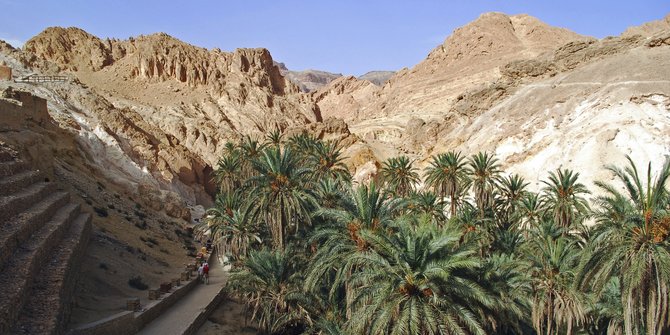
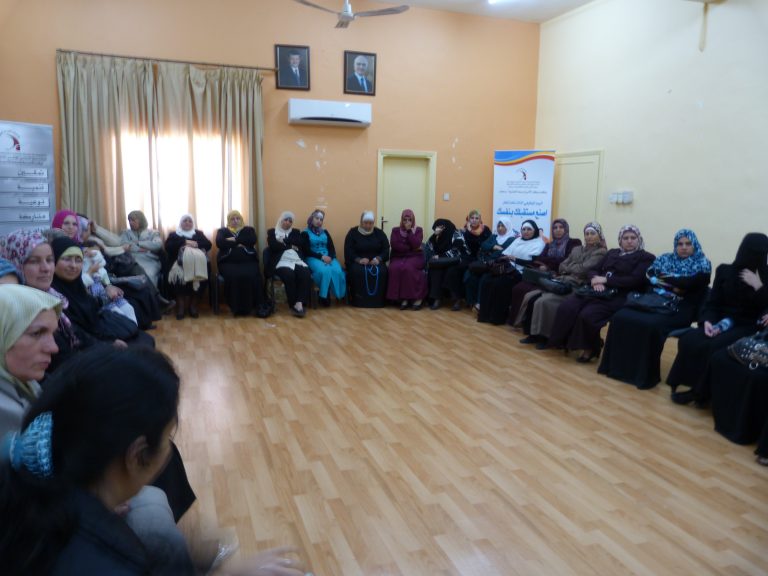
The Collective Leadership Institute worked with 120 people from the water sector in Jordan on a participatory research (multi-stakeholder dialogue) where the ideas of all involved were counted in with the purpose of establishing a network. The Water Wise Women Initiative was empowered to actively engage, interact, and gain trust with its partners in its communities and at the national level. The Initiative participants learned how to base their work on the dialogic approach and adapt it to the needs of a community of 50 countrywide development centres. The WWWI subsequently established a national network institution that also ensures local women’s participation in public life. The results were an increased water use efficiency of households and communities and a direct impact on gender relations in Jordan.
